From color TVs to Monopoly, these inventions and companies got their start in South Jersey
A bowl of Campbell's tomato soup, a diner cup of coffee, a wooden sled, glass bottles, the drive-in movie and a beach resort may seem to have little in common.
What these things, all of which have had an impact on lives around the world, do share is that they were either conceived in South Jersey or were born here.
The region of the state south of Trenton not only has a significant agricultural, industrial and technological history of firsts, but a longer history of discoveries as one of the original 13 American colonies and first 13 states.
"New Jersey has long been known as the Garden State and, in particular, South Jersey, but South Jersey also was and is in the vanguard of being an innovative state with endless inventions, technological developments and advances in medicine," said Paul Schopp, assistance director of the South Jersey Culture and History Center at Stockton University in Pomona.
"Prior to the Industrial Revolution there were many men and women who were tinkers and innovators before the introduction of mass production."
Inventions, discoveries and research have led to the development of fruit and vegetable cultivation, other food and non-food industries and even recreational and sports-related revelations, some because of the region's unique soils and forests.
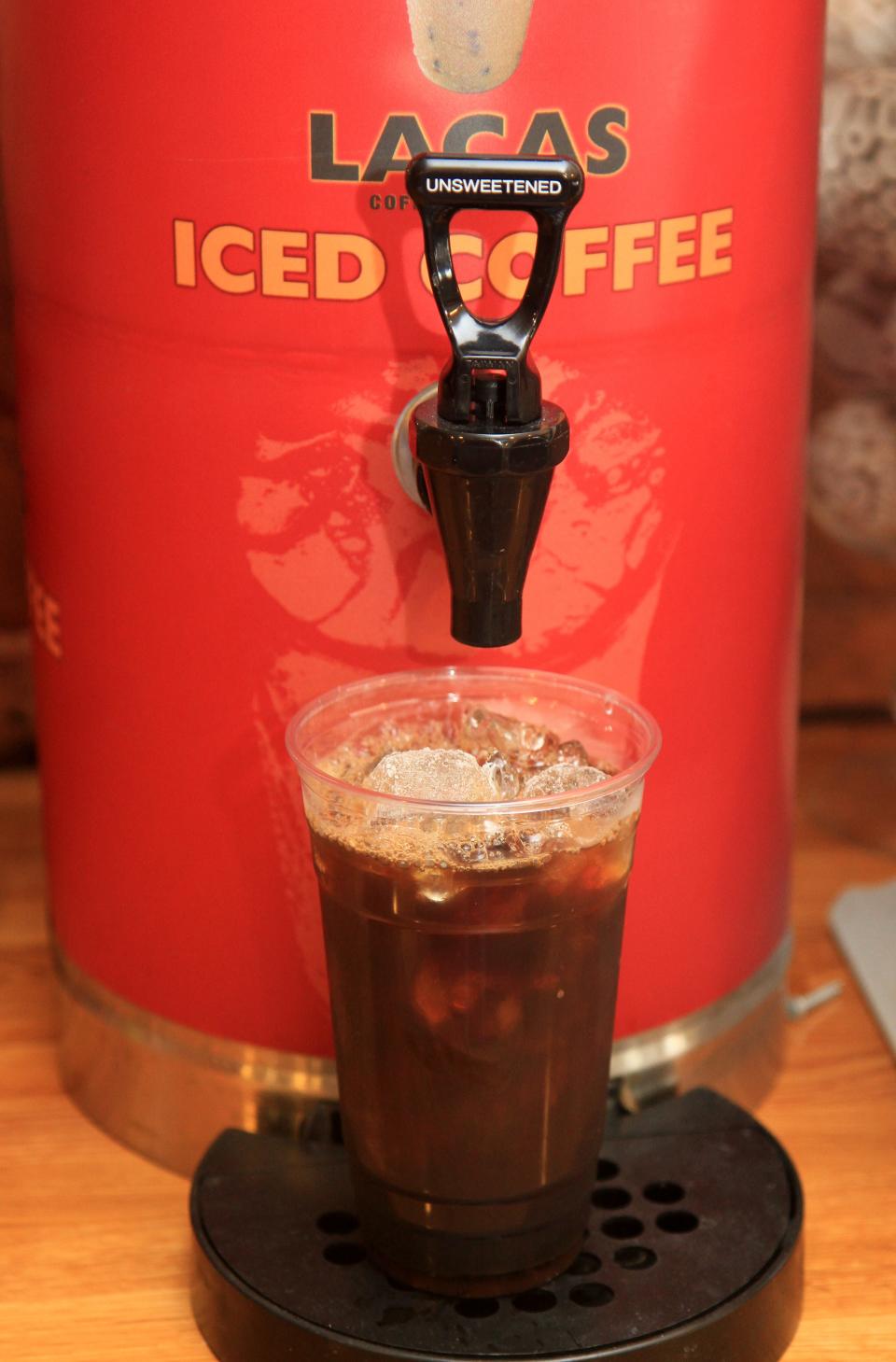
And while abounding with natural resources — most notably the million-acre New Jersey Pinelands — South Jersey also has been uniquely positioned on the Delaware River. Camden is in a major port area for commerce with Philadelphia. And it includes an Interstate highway, the New Jersey Turnpike and Garden State Parkway, which promote transportation of food and other goods.
The region remains innovative today, with technological advancements in realms including the defense industry and food product development.
From a crucial element of the National Pastime to the technology that allows you to use the self-check out lane, here are just some of the inventions and discoveries hatched in our backyard, and only-made-in-South Jersey products that have transformed lives or made life more enjoyable across the globe:
Baseball rubbing mud

Major League Baseball players — and especially pitchers — never liked shiny baseballs, so they tried different gritty substances to rub the sheen off the leather for better grip.
Player and former Philadelphia Athletics coach Russell Aubrey "Lena" Blackburne set out to find a better grit. He discovered a perfect wet soil along the Delaware River in Palmyra, where he had attended high school.
Lena Blackburne Baseball Rubbing Mud has been used on baseballs before games since 1950, first in the American League and later by both leagues.
After the mud source was lost to development, similar muck was found along a Burlington County creek at a site mined several times a year by mud company President Jim Bintliff. He inherited the business and recently moved its office from Maple Shade to Longport.
Beach resorts
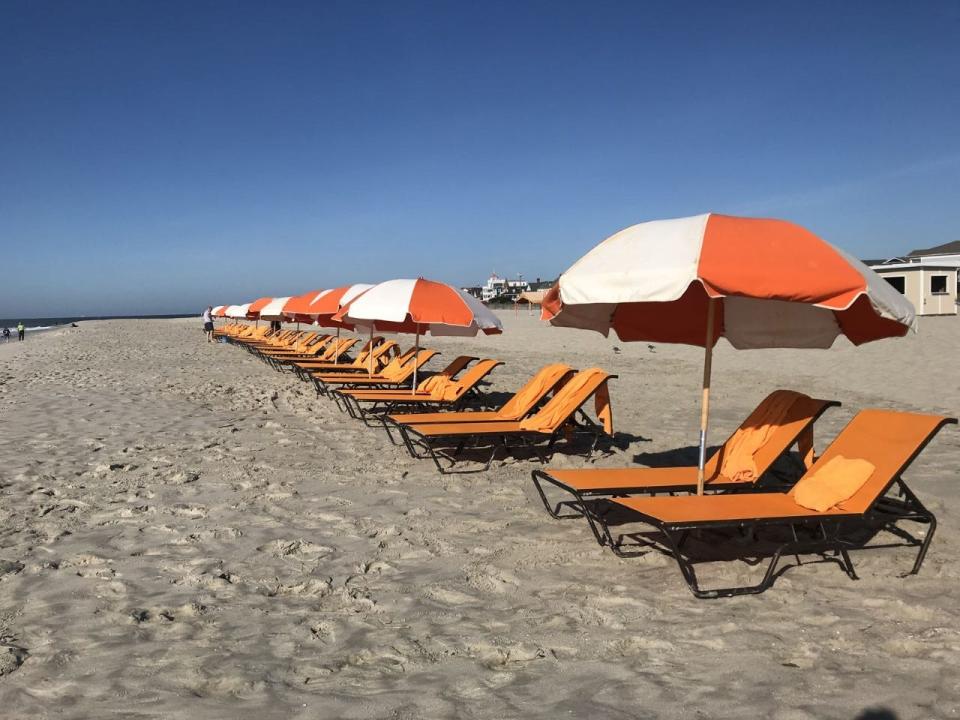
Atlantic City became the most well-known Jersey Shore town by the 1900s as the "Playground of the World," but it was not the first beach resort in America.
Another beach town to the south — Cape May — has that distinction, becoming a resort even before the 13 Colonies declared Independence from England.
Cape May is New Jersey's southernmost point, where the Atlantic Ocean and Delaware Bay meet. The city already was a beach resort by 1761, according to local historians. A century later, Victorian-era homes and other buildings were constructed, many of which still stand. This era of history has led to the federal designation of the entire municipality as a National Historic City Landmark.
The Boardwalk
Bathers who flocked to Atlantic City in the 1800s frolicked in ocean waves and crowded the sand at the waters edge, but tromping through hot sand for leisure walks or visits to seaside businesses was messy and tedious.
In 1870, Alexander Boardman built the first section of what became the first seaside boardwalk in the world. Bathers found it easier to stroll on the Boardwalk promenade than in the finely grained sand.
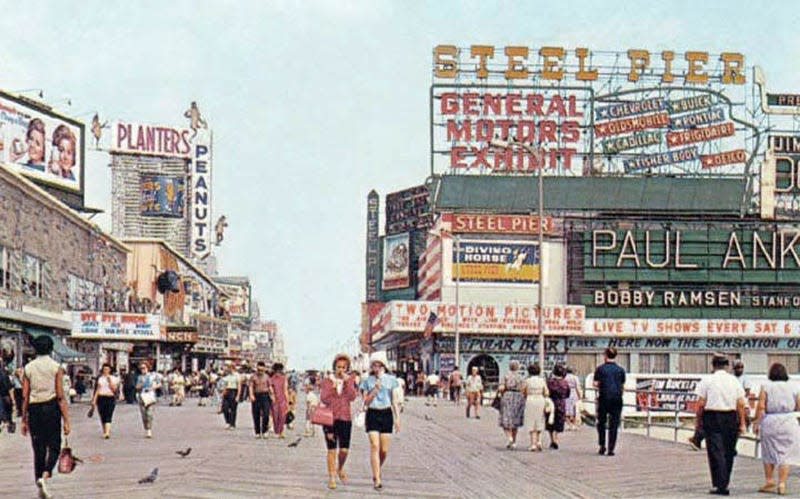
The boardwalk expanded and attracted lavish Victorian hotels, as well as clothing and candy shops such as Fralingers and James salt water taffy, a name for a popular summertime treat likely coined in Atlantic City.
The famous Steel Pier ruled the boardwalk for many years as a live entertainment venue until casinos arrived. Now the pier is an amusement venue.
Blueberries
Elizabeth White of Whitesbog in Pemberton Township, Burlington County, was the first to cultivate blueberries as a crop.

She enlisted local native American Indians and other local “Pineys” to bring her various blueberries that grew wild on bushes in the Pinelands there. She took the best varieties, cultivated them and harvested the first crop in 1916.
Her collaboration with botanist Vernon Coville led to the farming and commercialization of the blueberry, and New Jersey's reputation for treats like blueberry pie.
NJ's wine industry is booming: Here's where to find every winery in the Garden State
Burlington Coat Factory
Now known only as Burlington Stores and one of the largest retailers of textiles and home furnishings, the business started in Burlington, New Jersey, and not in the better known and bigger Burlington, Vermont, as some mistakenly think.
The family-run operation opened as the Burlington Coat Factory in 1972, with only one store in Burlington. Today it is a large retailer with more than 70 stores in 40 states and Puerto Rico, but its corporate headquarters is still located in Burlington Township, New Jersey.
Despite the name change, most people still call it the coat factory.
Campbell Soup
Campbell Soup Company has found its home in Camden "M'm! M'm! Good!" for more than 150 years.The most recognized name in canned soup, Campbell retains its headquarters in the city although its first manufacturing plant there — the first in the world to produce condensed soup — closed more than 30 years ago.
Tomato, its first and most popular soup, was made with Jersey Beefsteak tomatoes from South Jersey farmers who lined up to unload their tomato-laden wagons at the factory.
"Campbell Soup Company and Camden are like tomato soup and grilled cheese — a great combination. That why we’ve called Camden home for more than 150 years,” said Anthony Sanzio, senior vice president of communications and public affairs.
Fruit and vegetable wholesaler Joseph Campbell and canner/packer Abraham Anderson formed Anderson & Campbell in 1869. It later became Campbell Soup Company.
Its third president, John Dorrance, invented the condensed soup in 1897, while the company's home economist Dorcas Reilly created the beloved holiday staple Green Bean Casserole in 1955 and introduced Prego Pasta Sauce in the late 1900s.
The company's familiar "M'm!, M'm! Good!" soup jingle was written and aired as a radio commercial in 1931.
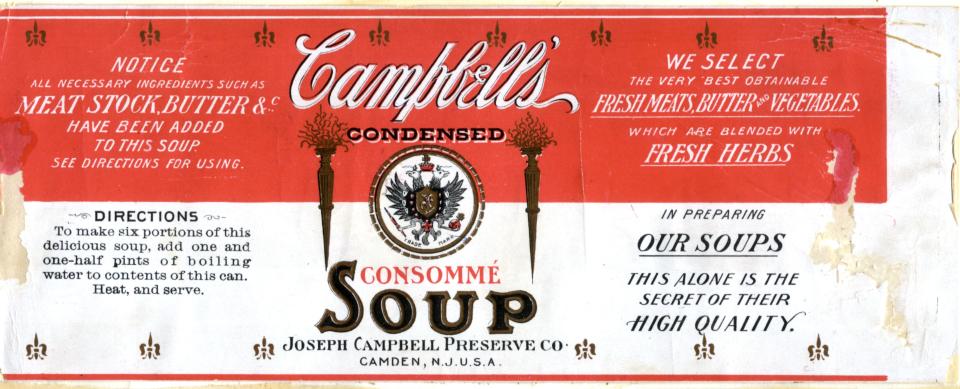
Canned tomatoes

Famous for its San Marzano tomatoes imported from Italy and other Italian and non-Italian food staple specialties, Cento became a national brand 50 years ago.
Third-generation family members of founder Alfred Ciccotelli own the company, headquartered in West Deptford where it has its factory.
The Cento company also owns the brands Ferrara, Anna pasta and Bellino, which makes everything from Panettone to extra virgin olive oils and aged vinegars.
They also own Little Gina’s Pizzelle cookies. Its pizzelle are made at a South Jersey bakery.
Cranberries
Joseph “J.J.” White, father of Elizabeth White, was the first to begin growing cranberries in bogs on his 3,000-acre Pinelands farm in Burlington County.
This inspired other cranberry growers in the Pinelands like Pine Island Cranberry Company in Chatsworth. They employ wet harvesting by flooding bogs with water and skimming off the berries after they rise to the surface.
White's cultivation led to New Jersey becoming one of the largest producers of cranberries in the United States.
Today, most large cranberry companies in South Jersey are part of the Ocean Spray Cooperative. They sell most berries to Ocean Spray for juice, but local whole berries can still be found in food stores and farm market stands.
Drive-in movies
In June 1933, a novelty movie-watching venue appeared on Admiral Wilson Boulevard near the Airport circle.
It was the first patented drive-in movie. Creator Richard Hollingshead called it the Automobile Movie Theater, but it was more commonly called by the name patrons gave it: the Camden Drive-In Movie. There, they parked their cars to watch a movie outdoors on a giant mounted screen.

The idea caught on and drive-ins began popping up around South Jersey in places like Pennsauken and Edgewater Park. Popcorn and drink stands were added, but by the end of the 1900s, drive-ins had all but disappeared.
Today South Jersey has the only permanent drive-in movie theater in the state, Delsea Drive-In in Vineland.
Flexible Flyer
Samuel Leeds Allen was looking for a way to keep his workers busy in winter when production of a farm equipment he invented slowed at his Philadelphia plant.
He tinkered around and invented a steerable wooden sled with steel runners on his farm in Cinnaminson before he moved to Moorestown. Both his plows and his sleds were the top sellers in the nation for more than 100 years.
Today you can see 20 of the antique Flexible Flyers in an exhibit in the Moorestown library.
“It is the Rolls Royce of sleds. Compared with later models that were copies made after the patent expired and also compared to today’s wooden sleds, it was built better and steers better,” said Phil Snow, who has researched and collected Flyers and curated the library display from his own collection.
Flying Fish Craft Beer
While Somerdale houses its only craft brewing facility and tasting room, the Flying Fish brand can be found in other Eastern states, as well as at some food stores, taverns and liquor stores.
Gene Muller started the business 30 years ago.
Without pioneering Flying Fish Brewery, the craft beer industry in New Jersey and nationally may never have grown to the size it is today.
It had no brick and mortar location when its independent business launched about 25 years ago as the first craft brewery in South Jersey and one of the first in the state, started virtually on the internet.
After opening a production plant in Cherry Hill and then outgrowing its capacity, Flying Fish moved to its Somerdale site.
“They are one of the forefathers of the entire industry,” said Eric Orlando, executive director of the Brewers Guild of New Jersey, calling Flying Fish a “quintessential” brand found in most every bar and restaurant in the region and on retail shelves.
“It is one of the first craft breweries to evolve from the ground up when no one could have not foreseen the explosion of the craft beer industry in the state or let alone in the country,” Orlando continued.
"They served as a foundation to the craft brewery industry in the U.S. before there was an industry and were brewing beer when folks didn’t even know what craft beer was but also when interest in beer generally was just starting to tick upward.”
The Greatest in South Jersey: Remembering when Muhammad Ali lived in Cherry Hill
In the southern counties, Flying Fish is second in size only to Cape May Brewery, which also is the largest craft brewery in a state of 130 production craft breweries.
Company President Frank Rio of Cinnaminson says while Flying Fish can be found in other states, the company's "real goal is to still win in our home market of South Jersey and surrounding counties (because) there are more breweries than ever.''.
Grape juice
A dentist and teetotaling churchgoer objected to drinking wine for Holy Communion.

Dr. Thomas Bramwell Welch set out to develop a non-fermented, non-alcoholic wine so it could be served for Communion at his Vineland Methodist Episcopal Church and at other local churches.
Vineland grew grapes aplenty, so he developed a grape juice using a pasteurization method that halts fermentation.
In 1869, Welch founded the Vineland Unfermented Wine Company but did not intend his product for retail sale and only sold it as a sideline as a health drink. That changed when his son Charles eventually took over and renamed the company Welch's Grape Juice in 1893.
Irrigation and frozen food
Seabrook Brothers and Sons, Inc, in Bridgeton is a family operation that grows, processes and freezes 150 million pounds of vegetables for its Seabrook Farms brand.
Albert P. Seabrook started the farm in 1870. It was the first to use overhead irrigation and gasoline-powered tractors that Seabrook developed. By the 1930s, Seabrook was partnering with Clarence Birdseye and General Foods to successfully quick-freeze vegetables, a method Birdseye developed.
At one time Seabrook operated the largest processing plant of its kind, supplying 20 percent of the nation's packaged frozen food.
Lacas Coffee
Walk into Ponzio's, Olga's or most other most diners in South Jersey for a steaming cup of coffee and the pot likely will be marked with the name Lacas.
This year marks the 100th anniversary of Lacas Coffee Company and Roastery, an independent coffee manufacturer started by a Greek immigrant whose only plant and headquarters are in a Pennsauken industrial park.
The company supplies to about 1,000 diners, delicatessens and restaurants with Lacas in New Jersey, Pennsylvania and New York, and also provides repair and replacement service for Lacas coffee brewing equipment across the Garden State and beyond.
Additionally, it distributes coffee to other food service businesses across the country, and roasts coffee for 100 other companies. Lacas just recently bought the Dallis Coffee company in Long Island.
Lacas still carries its Original City Roast but has moved from importing, roasting and distributing a few premium coffees to providing a palette of more than 30 roasts for food services and private labels.
"We're growing. We're at record levels of new business and we're now offering cold brew," said principal partner and CEO Jonathan Del Re.
"We sell consistency and operate with passion by people who truly care what they do."
Laser bar code scanners
Inventor C. Harry Knowles of Moorestown was never afraid to fail — and never did.
After working on new technologies for Bell Labs and Westinghouse in upstate New Jersey, Knowles started Metrologic Instruments in 1968 in Blackwood and popularized the use of bar code scanners.
Reader, covering our local communities takes time and resources. Help us better support your community by becoming a subscriber. — subscribe today!
He held a whopping 400 patents for transistors, lasers and bar code scanning technology.
At Metrologic he developed and manufactured more advanced price scanners that were sold worldwide in 100 countries. They led to the development of hand-held, trigger-less and mini-slot laser scanners, some of which his company also manufactured.
A much earlier invention of his was the star transistor, which preceded integrated circuits.
Military defense
In Greek mythology Aegis is a shield or breastplate Zeus wore for protection.
Protection on the seas against enemy targets was developed in Moorestown by the Missile and Surface Radar Division of RCA, which labeled it the Aegis Combat System.
Several types of U.S. military ships like Navy cruisers, destroyers and those of its allies are equipped with a computer and radar system that can track and guide weapons that can destroy enemy targets.
Lockheed Martin of Moorestown has further advanced the system since it assumed control of that RCA division. Lockheed has since developed Aegis Ashore in Hawaii and for European partners in NATO with the first one installed in Romania.
Organic fertilizers
Home gardeners may not recognize the name Espoma, but they likely have used its lawn and garden fertilizers. Their first biggest seller — HollyTone— is still for sale.Espoma is a Millville company and is an innovator and provider of many organic fertilizers for the lawn and garden industry. Founded in 1929 by Herbert G. Sanders, the family-owned company is operated today by a fourth generation. Its product line has expanded to include treatments for vegetables, berries and trees.
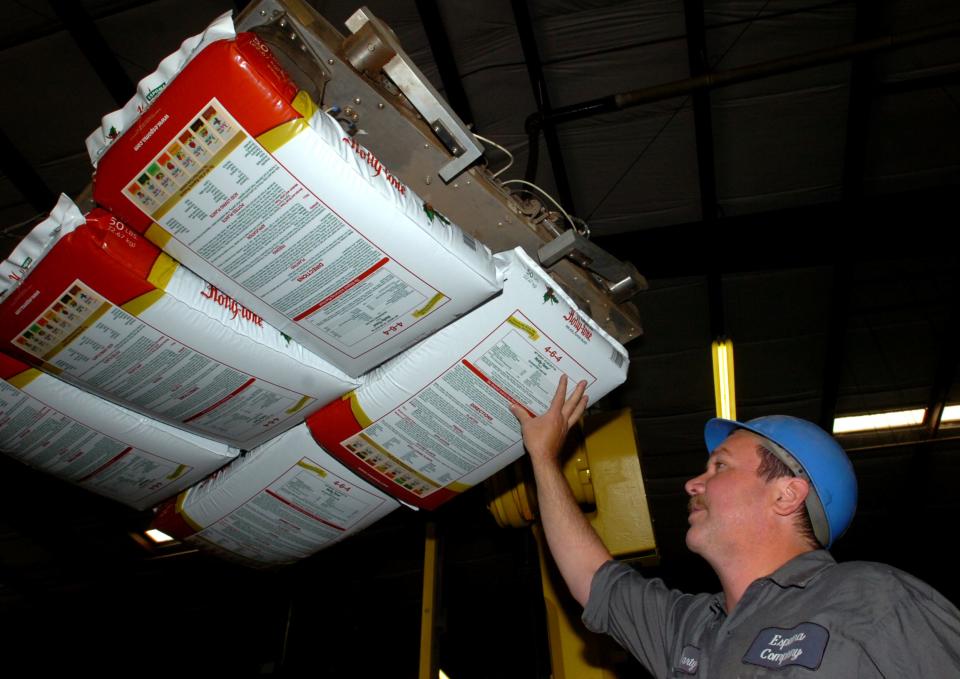
Ralph Gaudio, who ran his own garden center for years in Marlton, sold Espoma fertilizers and his own name brand version also made by Espoma.
"All their products work and they're safer because they are organic. The fertilizer is released slowly and within a week of using it, the results are unbelievable," Guadio said.
At Gaudio's urging, Espoma began making products for vegetables and trees and called them GardenTone and TreeTone, he said.
Locomotives
An event hailed as a great "railroad experiment" happened in Bordentown almost 200 years ago.
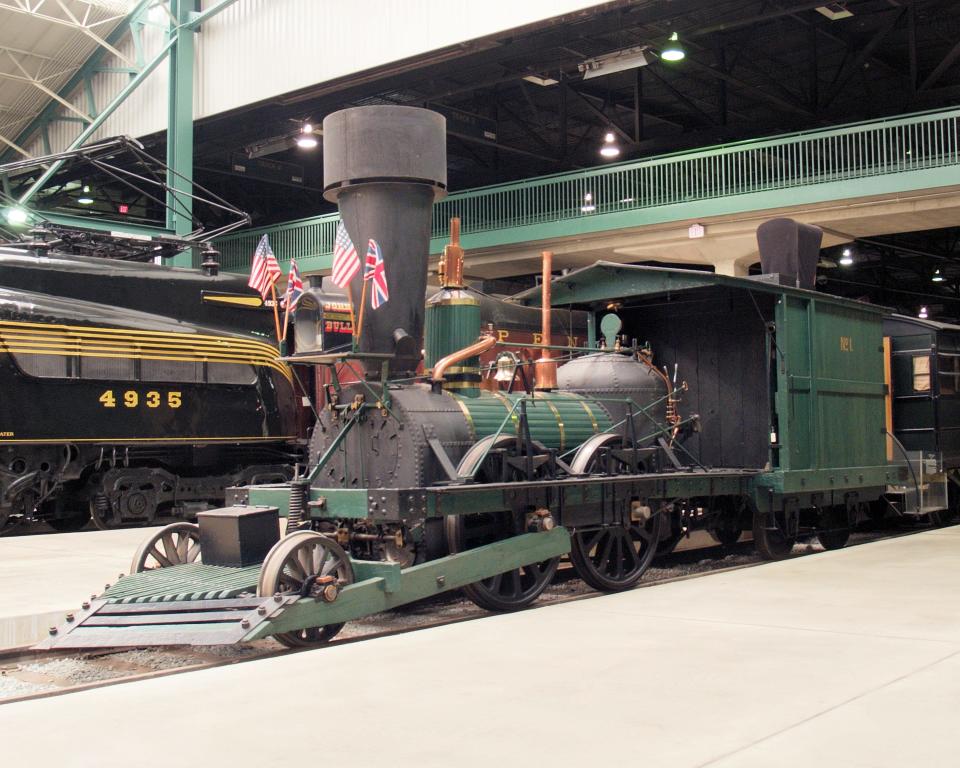
The now-famed John Bull, one of the first steam locomotives, had its first run test run there in 1831. It pulled stagecoach like rail cars that carried state legislators on the Bordentown section of the Camden and Amboy Railroad, the first railroad line in the state and the second in the country.
The original John Bull is now in the Smithsonian's National Museum of American History in Washington, D.C. An exact replica built later by the Pennsylvania Railroad also can be seen at the Railroad Museum of Pennsylvania in Strasburg.
Mason jars

Today Mason jars are likely to be holding craft cocktails for hip diners.
However, the Mason jar was invented in Vineland for jarring fruit and subsequently was used for "canning'' vegetables before refrigeration was developed.
The history of the Mason jar can be traced to the mid-1800s and tinsmith John Landis Mason of Vineland. He sought a container in which to pour warm jelly and then store it so it did not spoil.
He fashioned a specially shaped glass jar with threaded grooves around its opening, made a metal lid with threads to screw on and added an airtight rubber seal. For his invention, he was issued a patent on Nov, 30, 1858, a date that appeared on many early jars.
He later invented the screw-top salt shaker.
More coffee
Over the years, a coffee aroma has drifted over I-295 near the intersection with Haddonfield Road in Cherry Hill.
That's where Melitta USA and North American has its only U.S. coffee roasting plant.
The company takes its name from Melitta Benz of Germany, which first manufactured coffee filters alone. The company now makes coffee makers, in addition to coffee and filters.
Metal smelting
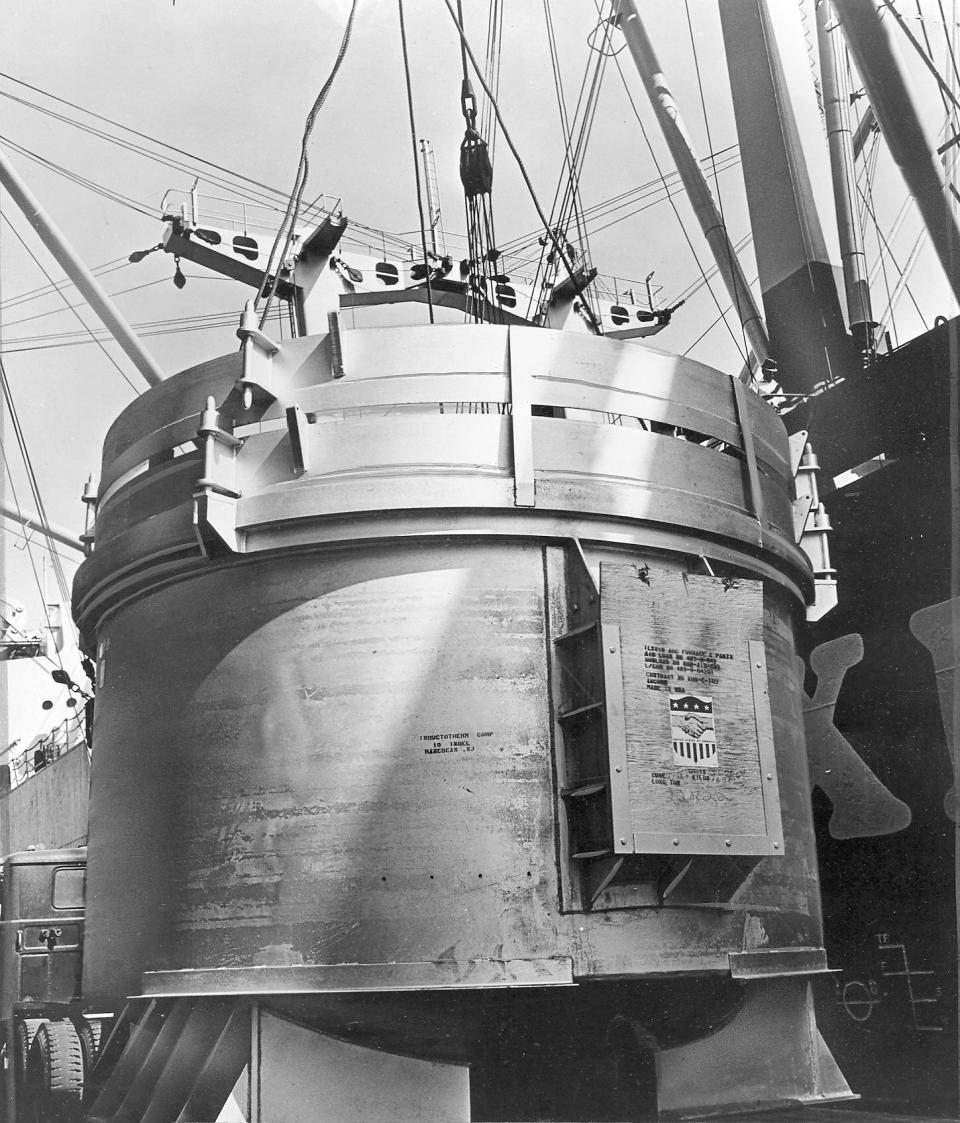
The late industrialist and philanthropist Henry Rowan went from a first business selling eggs for his mother to building a furnace in his backyard to inventing a process for microwave cold-smelting of metals.
He founded Inductotherm Industries Inc. and opened his first plant in Trenton. Soon after he moved it to Westampton, where it has been operating for more than 55 years and still sells induction melting furnaces worldwide.
Rowan held multiple industrial patents. He also was a philanthropist, gifting Glassboro College a massive $100 million endowment that transformed it into Rowan University.
Monopoly
Navigate Atlantic City's streets — many named after U.S. states — buy up or trade properties, develop houses and hotels and try to monopolize the real estate market.
That's what players do when they compete in Monopoly, a longtime favorite board game released by Parker Brothers in 1935.
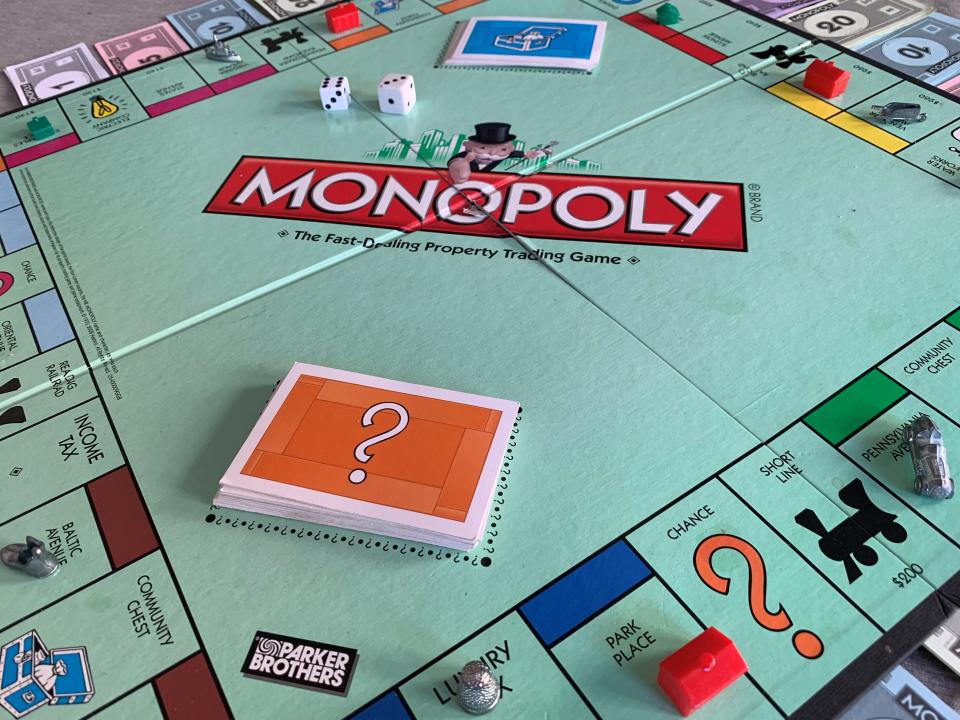
Players traverse streets with names like Tennessee and North Carolina, Boardwalk and Park Place as they move their unique metal game pieces around the square board based on a roll of the dice or directive from Chance or Community Chest cards. (If you play the old-school version, you may still play with a thimble, wheelbarrow, shoe or iron, pieces which have since been retired.)
Today, the game is owned Hasbro and boasts more than 20 different themed versions from the classic Atlantic City version (which includes references to other nearby beach towns) to national parks, Disney, "Star Wars,'' "Star Trek'' and a limited edition for Asbury Park.
NFL Films
Ed Sabol had a fascination with film and football and decided to put them together.
He founded Blair Motion Pictures in 1962 in Mount Laurel and renamed it NFL films three years later. The company is the primary producer of the NFL's non-live film and videotape content for fans and teams alike.
Sabol and son Steve are credited with revolutionizing major sports coverage through special camera angles and many other techniques.
Pullman Cars
Colliswood businessman Edward Collings Knight invented the "Knight" railroad sleeping car in 1859, but that name didn't stick for long.
Why? He soon sold his patent to George Pullman, for whom the Pullman Car — and its legendary Pullman Porters — took their name.
Knight does have something named for him — the town park in the center of Collingswood.
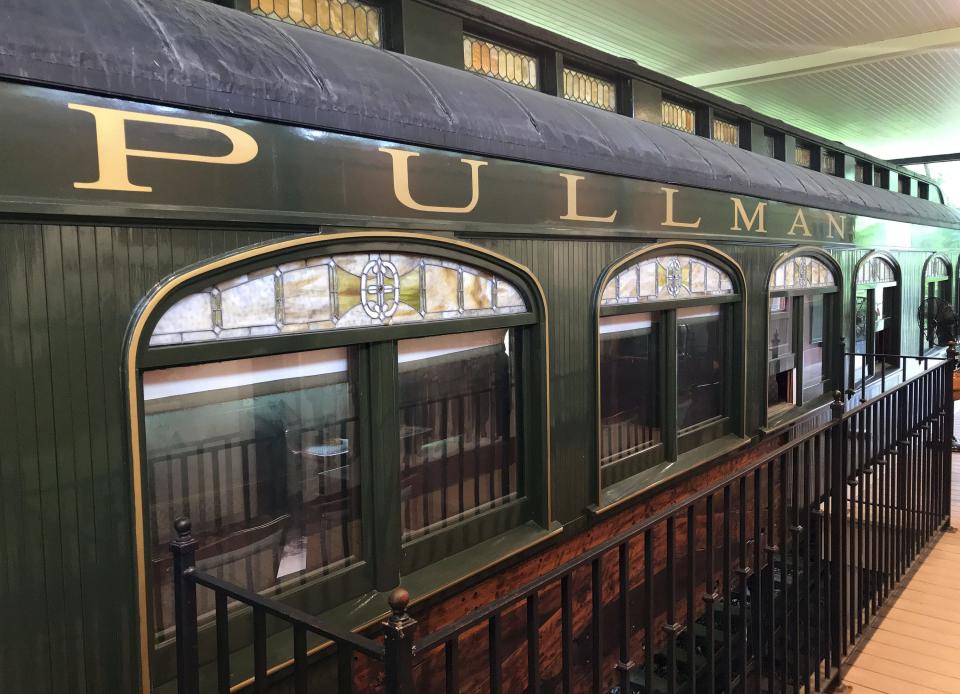
Record players and television sets
RCA Victor Company in Camden revolutionized radio and television in the early and mid-20th Century, dominating electronics and communications in the United States for more than 50 years.
Its famous mascot trademark, "Nipper," a (terrier) dog listening to a vintage record player, is still atop the former RCA Building 17 in Camden in artful stained glass. The building is now the Victor Lofts and Victor Pub.
RCA created the 45 rpm record, the National Broadcasting Company (NBC) and produced the electronic television system using cathode ray tubes as the transmitting and signal receiving system.
That invention subsequently led it to advance from black and white television to color TV sets in 1953.
RCA also had other technology inventions — the electron microscope, various transistors, power semiconductor devices, integrated circuits and the VCR. The company was bought by General Electric in 1986, disbanded and liquidated.
The disc record and record player, which is enjoying a nostalgic comeback, has South Jersey roots extending to the Victor Talking Machine Co. founded in 1901.
Eldridge Johnson and Emile Berliner started the company in Camden under another name. The first music records were recorded in a Front Street garage in Camden in 1896 and Victrolas, as phonographs were called then, also were being manufactured. This continued until 1929 when Victor Talking Machine merged with RCA.
By that time, the Victor company had become the world's biggest manufacturer of both disc records and phonographs, their popularity upending the cylindrical system invented by Edison.
Today a revived RCA Victor is again manufacturing vintage record player turntables under the ownership of South Jersey musician, entrepreneur and Camden native Graham Alexander. He acquired the Victor Talking Machine Co. tradename and business, The Victor Vault in Berlin is resurrecting other parts of the legacy of the once great company.
"The amount of innovation that was done in Camden is shocking and even insane. It took on massive manufacturing," Alexander said, "And the entire modern media comes down to what happened in six blocks of downtown Camden in a state that was a crossroads of the Industrial Revolution."
"We wanted the Victor Co. restored to the area because we believe in Camden and the power that Victor legacy has to help musicians in the modern age."
Snowboards

Athlete Tom Sims was 13 when he began tinkering with an idea in a shop at Haddonfield Central School.
What he created with assistance from classmate John Murray in 1963 was the first snowboard, thereby inventing the sport of snowboarding.
Sims became the World Snowboarding Champion and turned his invention into a business by selling snowboards with the Sims brand.
Sims died at age 61 in California.
Wheaton Glass
Sand is a plentiful in South Jersey, once the glassmaking center of the country.
Pharmacist Theodore Corson Wheaton started a factory in Millville in 1888, first manufacturing glass bottles for medicine and perfumes and later other glassware types until it closed after 126 years and was absorbed by Wheaton Industries.
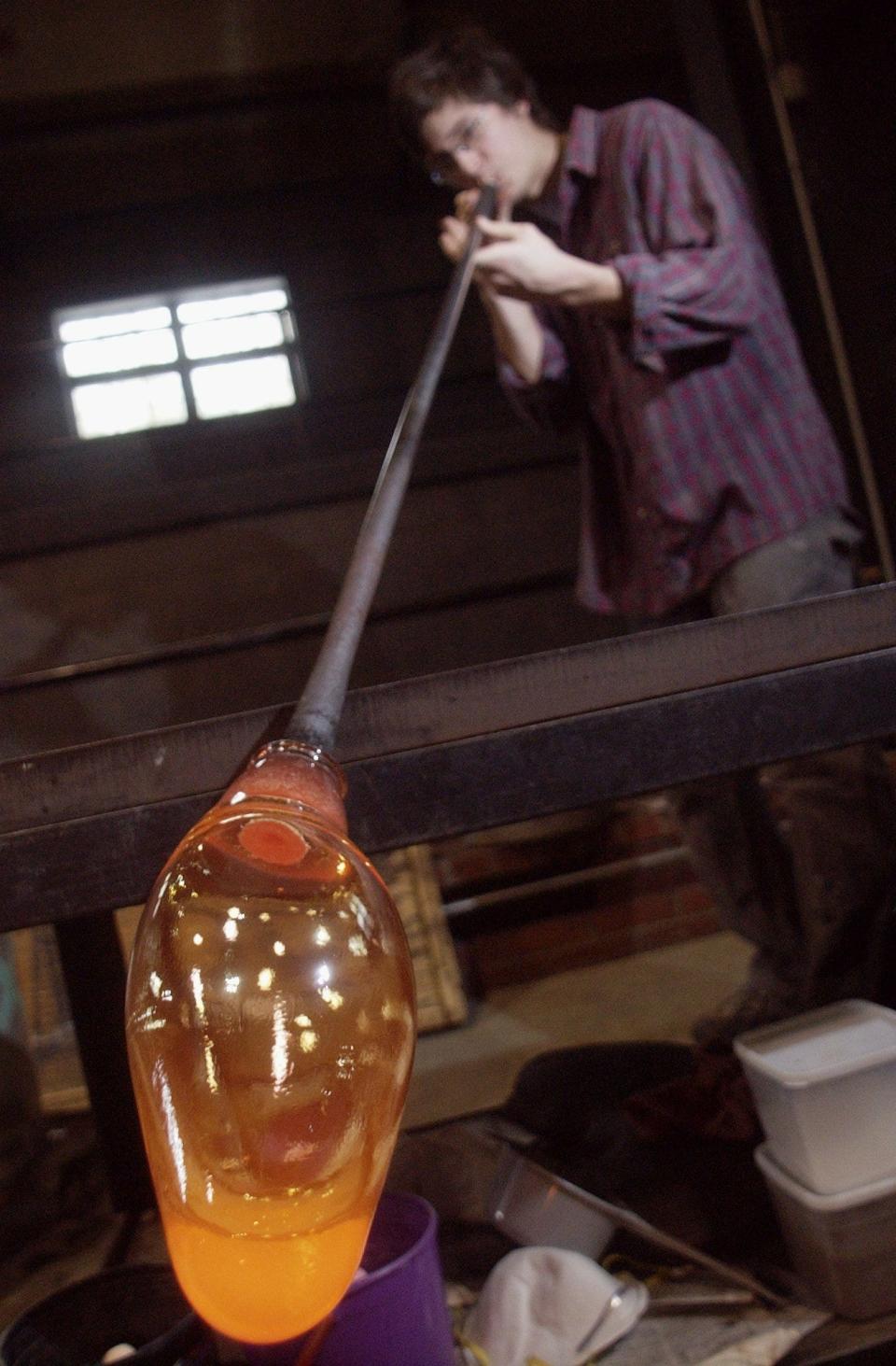
Wheaton also issued miniature commemorative bottles with famous people or place themes that are considered collectibles today.
Today WheatonArts is in Wheaton Village and is home to the Museum of American Glass, but glassmaking demonstrations have been temporarily suspended.
Carol Comegno loves telling stories about South Jersey life, history and military veterans for the Courier Post, Burlington County Times and The Daily Journal. If you have a story to share, call her at 856-486-2473 or email ccomegno@gannettnj.com.
Support local journalism with a subscription.
This article originally appeared on Cherry Hill Courier-Post: Made in South Jersey: From color TVs to Campbell's Soup

